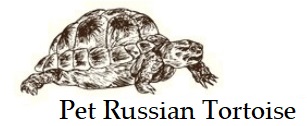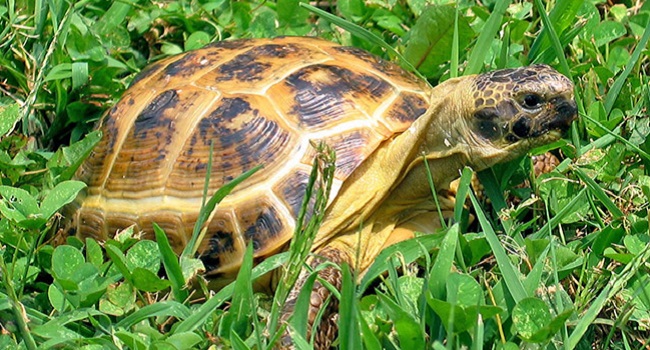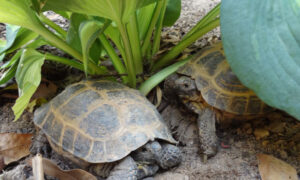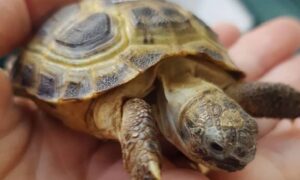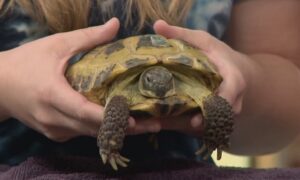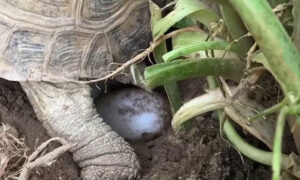Russian tortoises are good pets. They’re actually one of the most popular pet tortoises. Russian tortoises are a smaller sized tortoise that can be kept entirely inside. They’re active and responsive to people. Russian tortoises can become a gateway to adding other pet tortoise species or reptiles to your home.
Are Russian Tortoises Good for Beginners?
Due to their hardiness and overall good health, Russian tortoises are good pet tortoises for beginners.
The basic housing requirements for a Russian tortoise are fairly simple. Lighting and heating are easily achieved with proper UV and heat bulbs. Russian tortoises do not have complex requirements for a healthy life.
The diet of a Russian tortoise is fairly simple with grasses, weeds and greens. You won’t need to harvest rare plants, and you won’t need to prepare a complicated diet of vegetables, fruits and meat proteins. Russian tortoises are strictly herbivores and will thrive on common broadleaf weeds and plants along with tortoise pellets and grocery store greens.
Do Russian Tortoises Bite?
A big factor in bringing home a new pet, is the safety of the people in the home. You don’t want to bring home an alligator snapping turtle that can rip off a finger while doing routine housing maintenance.
That said, Russian tortoises generally do not bite. A Russian tortoise may accidentally bite if you’re hand feeding. Or maybe your toenails are painted and you’re in the outdoor enclosure. The tortoise may try to take a bite of your red toes thinking it’s something tasty.
In most cases, you won’t find a Russian tortoise that will aggressively charge you or your hand.
Do Tortoises Like to Be Held?
Tortoises like to be pet, but you won’t find many tortoises that want to snuggle on the couch while you watch your favorite TV show. Although, you may find a tortoise likes the top of his shell rubbed or maybe his head or neck.
Do Tortoises Bond with People?
Tortoises are not dogs or cats. Your tortoise most likely will not great you at the door when you come home from a long day at work or school. However, tortoises can and do show affection. And, you will find that tortoises will react differently to different people.
- A Russian tortoise, or any tortoise, won’t beg for petting, but the tortoise may sit and be content with you in their space.
- Tortoises may follow you around to see what you’re up to, if you have the tortoise free-roaming the house, yard or large outdoor enclosure.
- Tortoises may walk toward you or pace the enclosure boundaries to get your attention.
- Some tortoises will even stretch out their neck for a rub. You know your tortoise likes that spot when he leans into your touch and closes his eyes.
As for emotions and feelings, we tend to impart human emotions onto our pets. Tortoises aren’t necessarily jumping for joy or sad. Tortoises do experience content, curiosity, fear and boredom. A bored tortoise will knock over food plates or move houses in the enclosure. A scared tortoise will suck in its head and legs.
